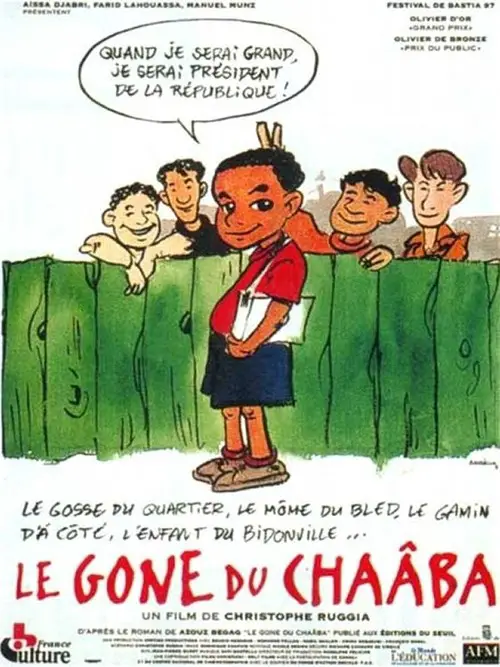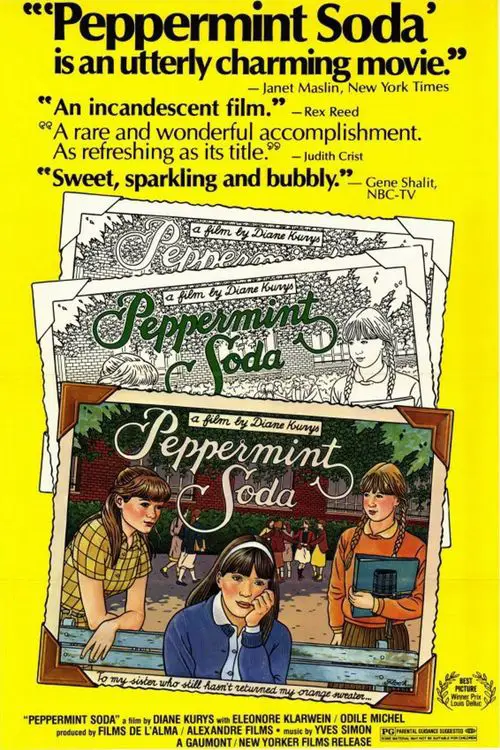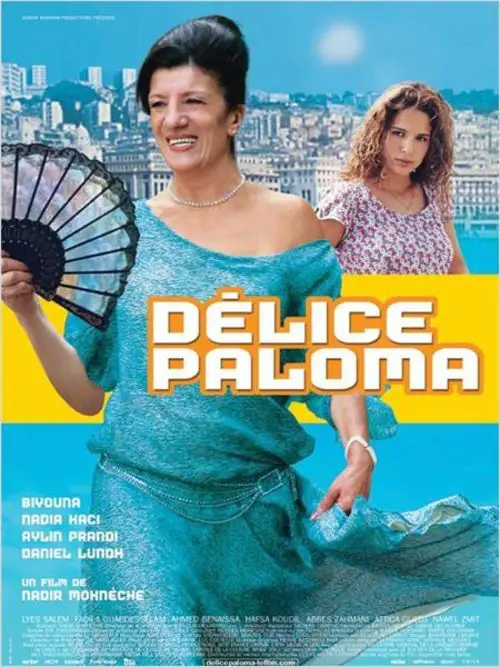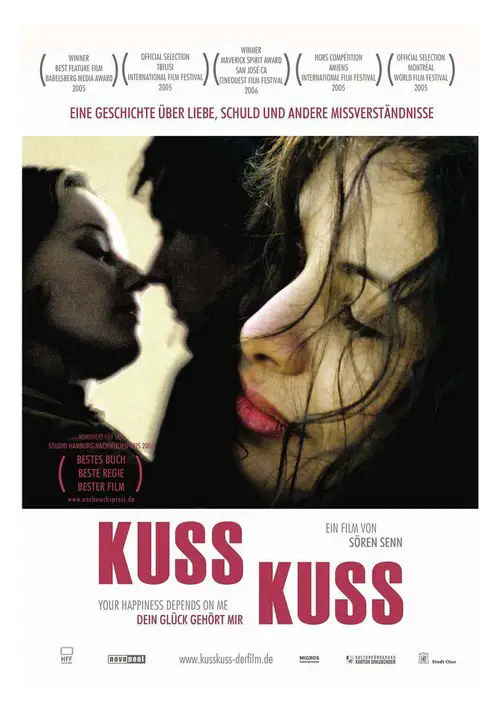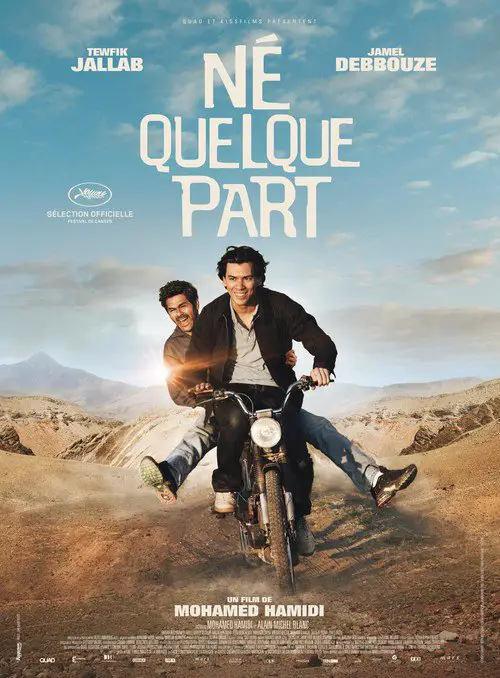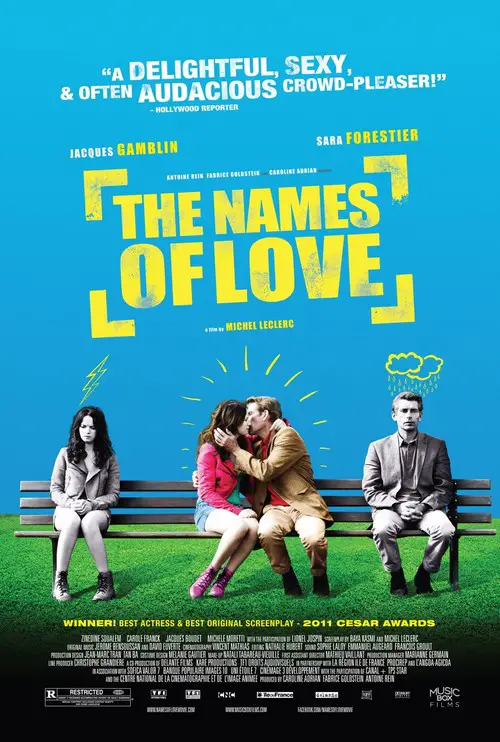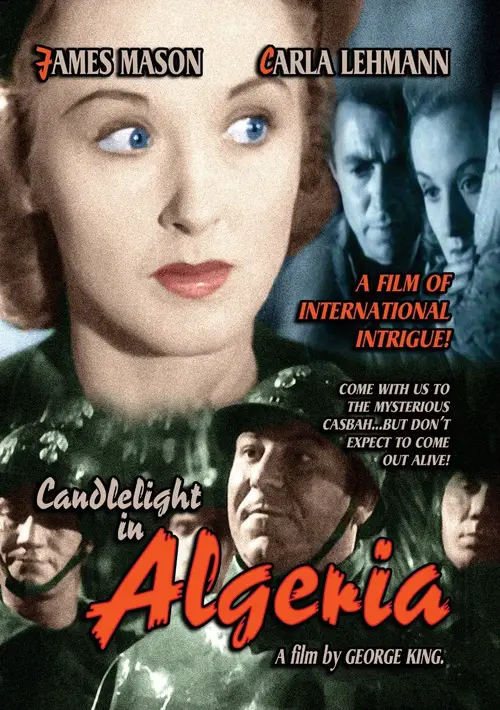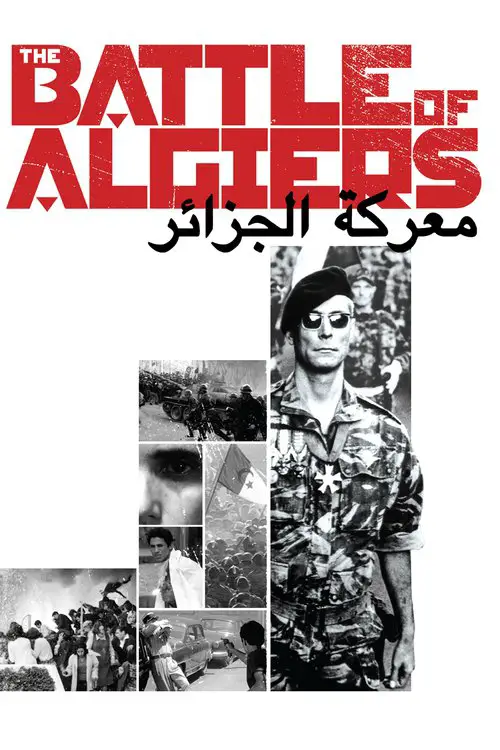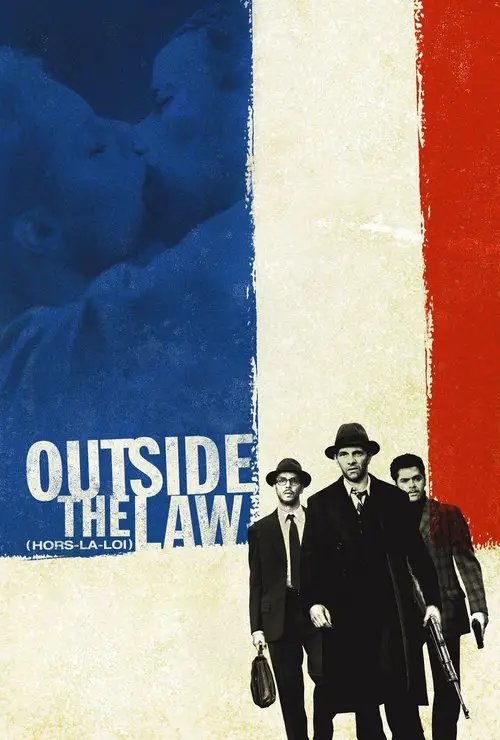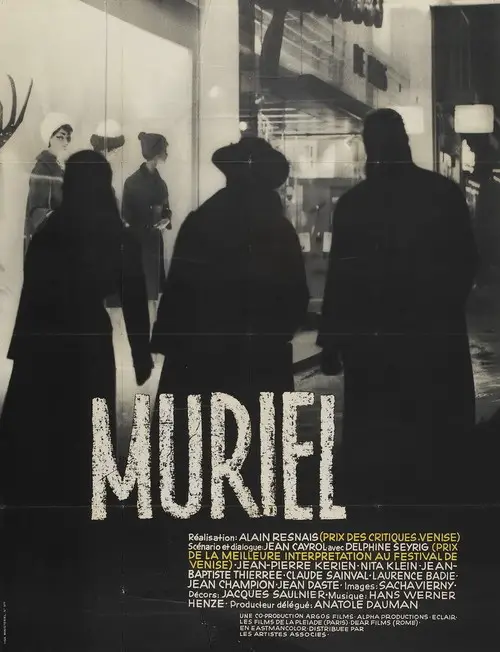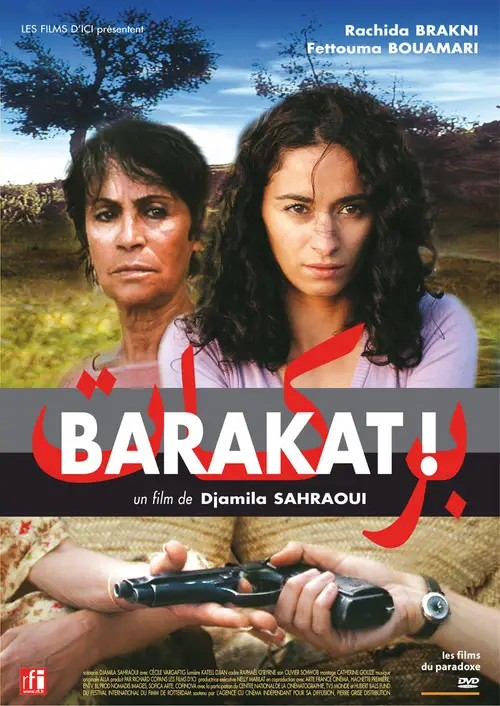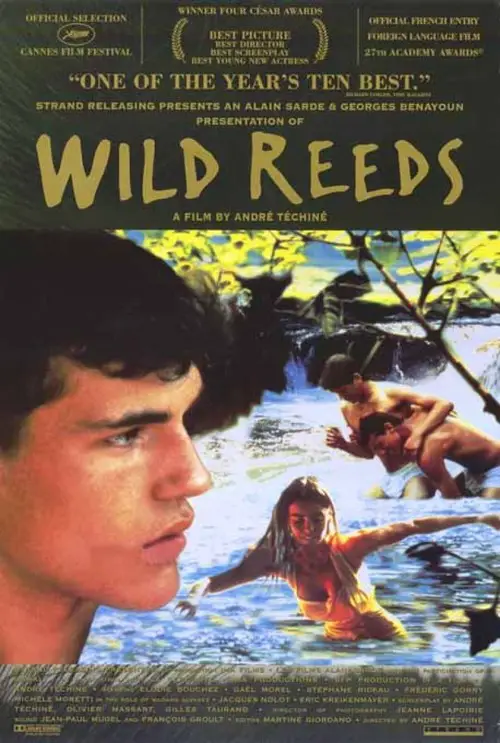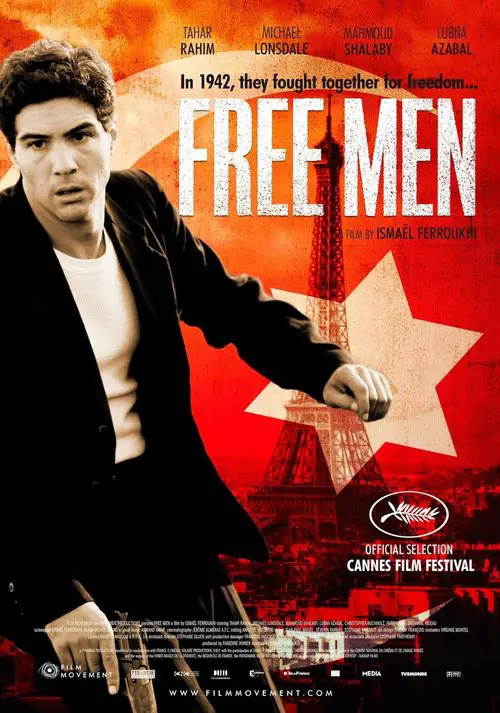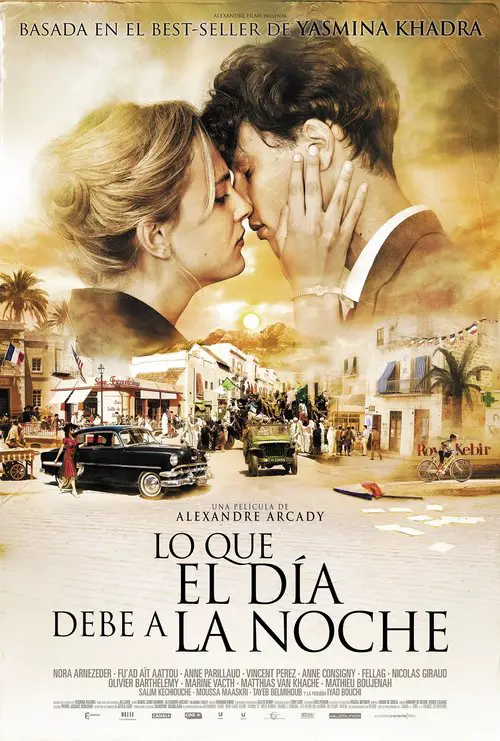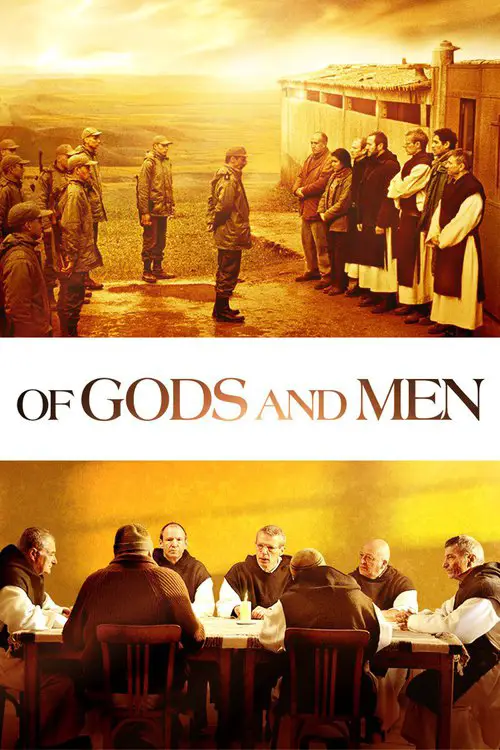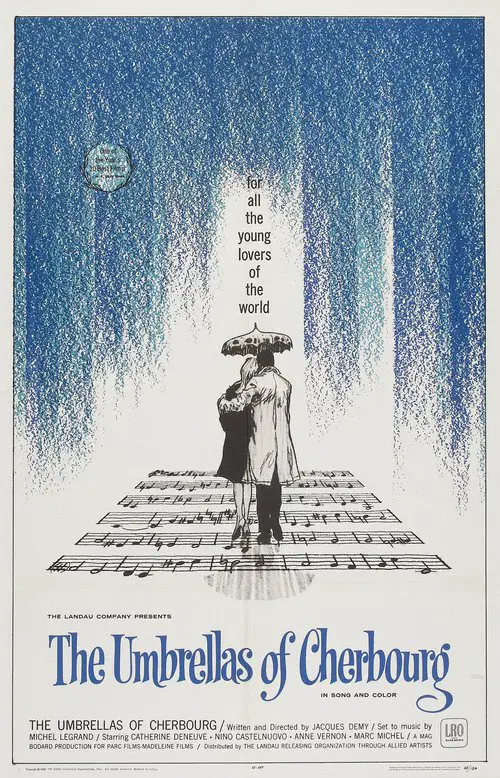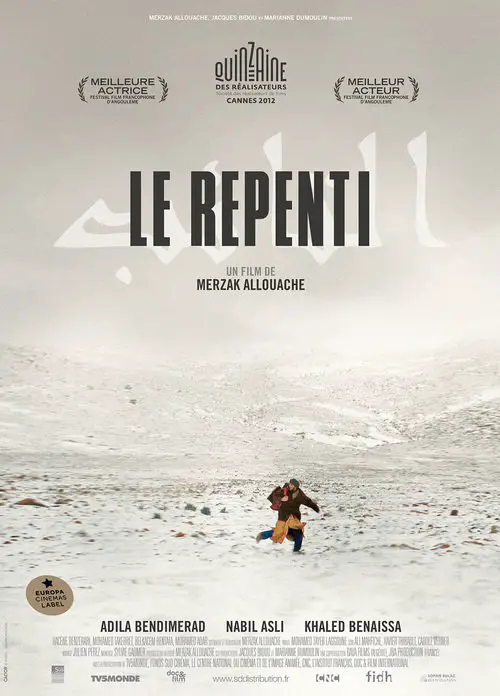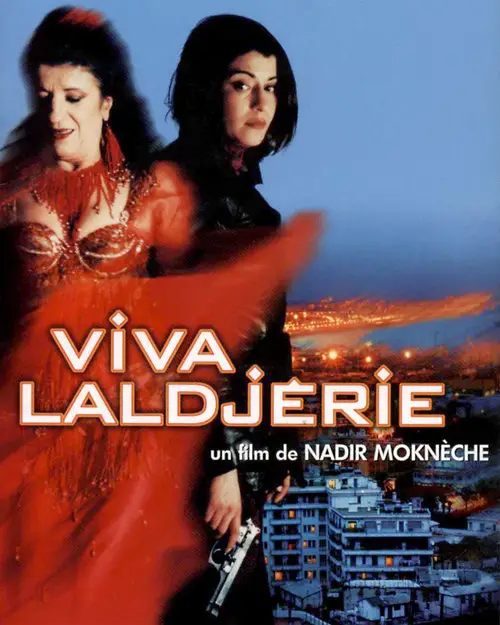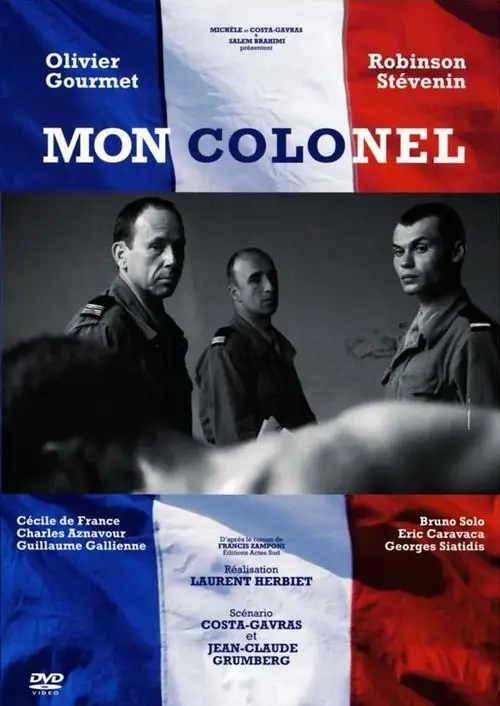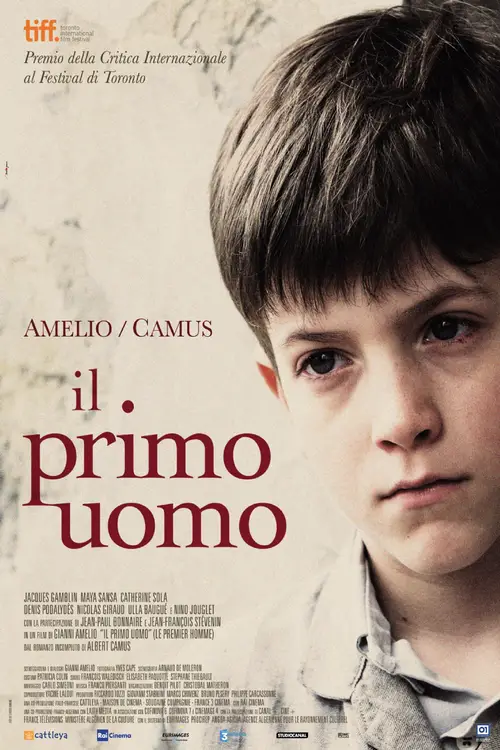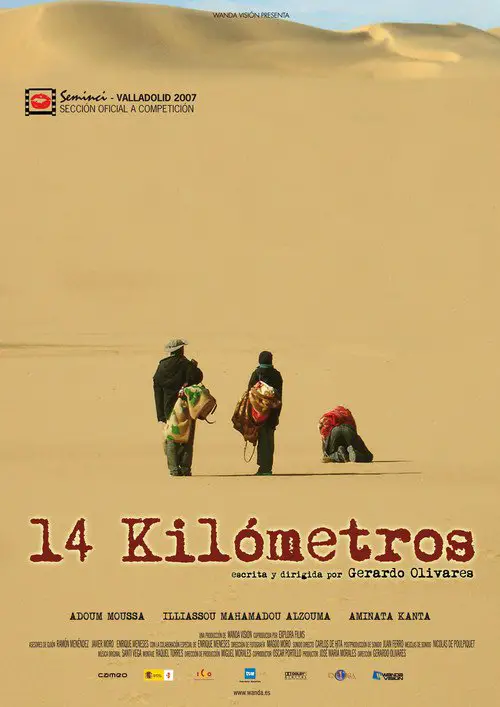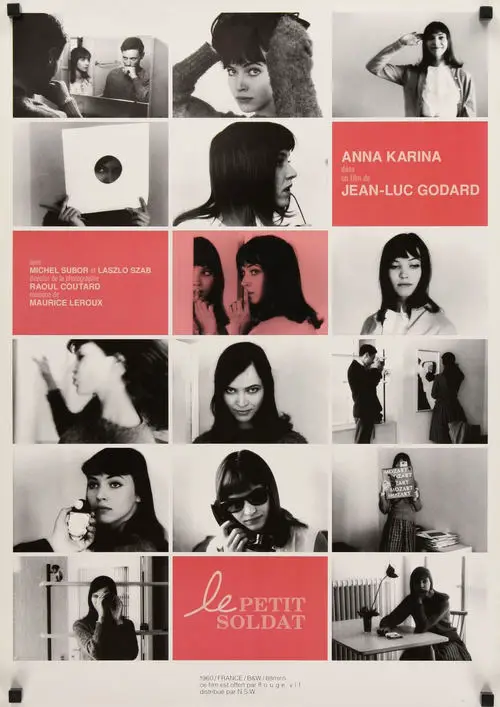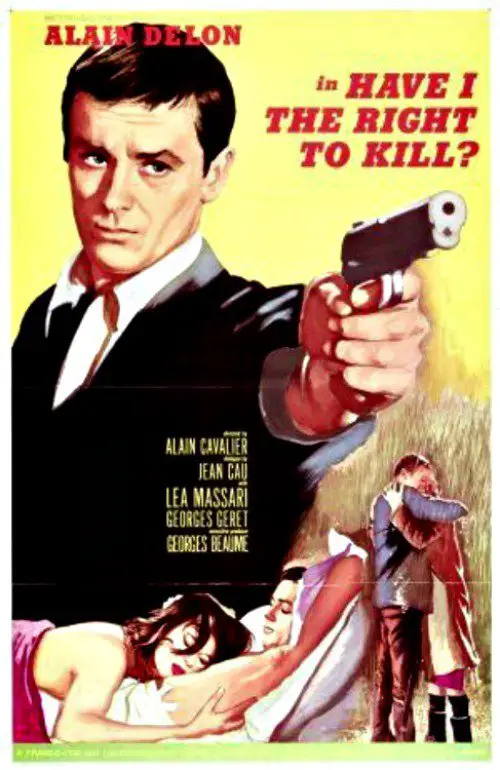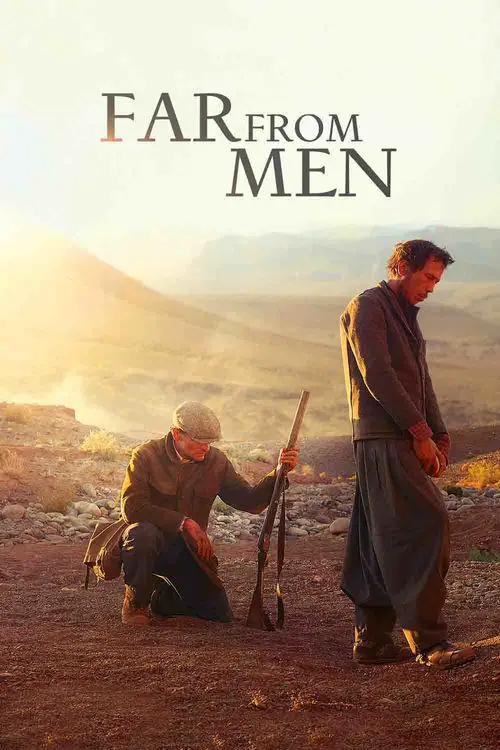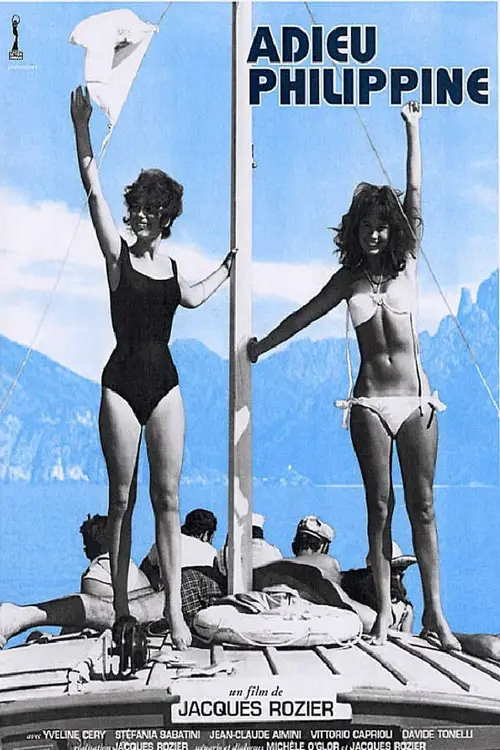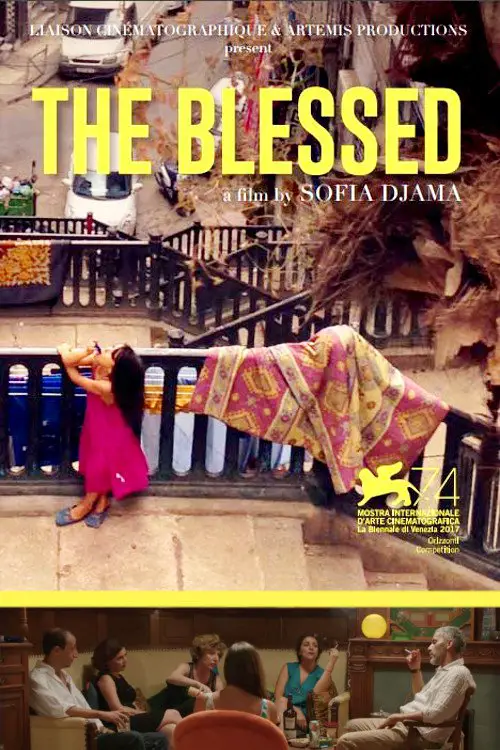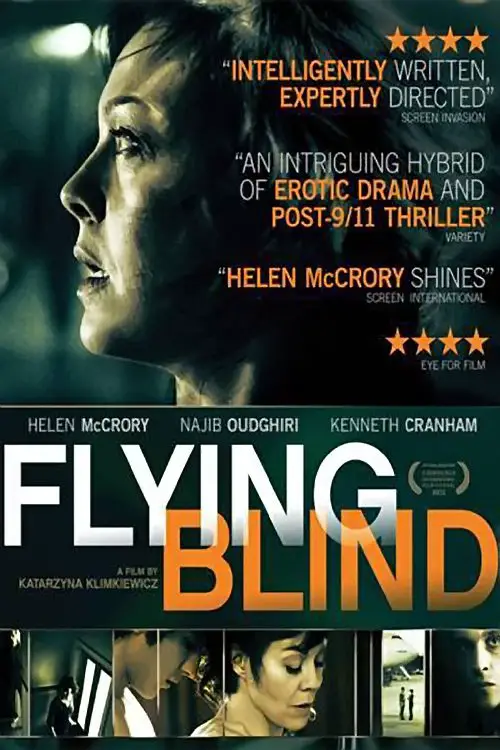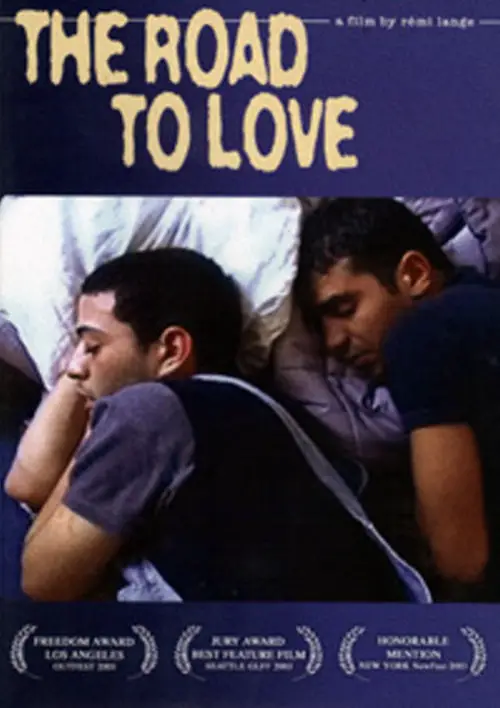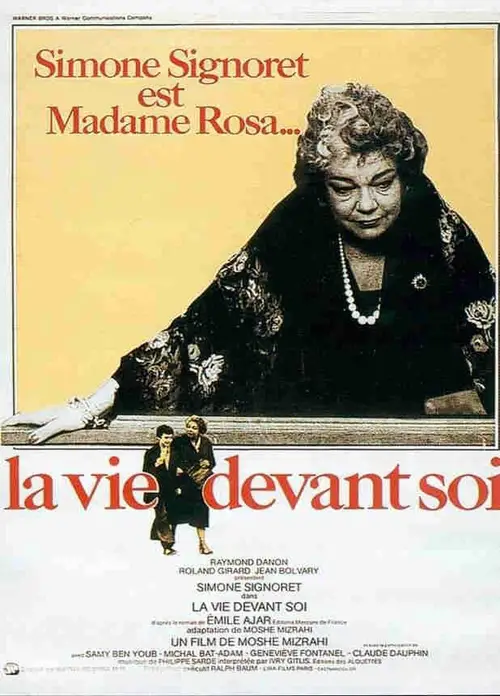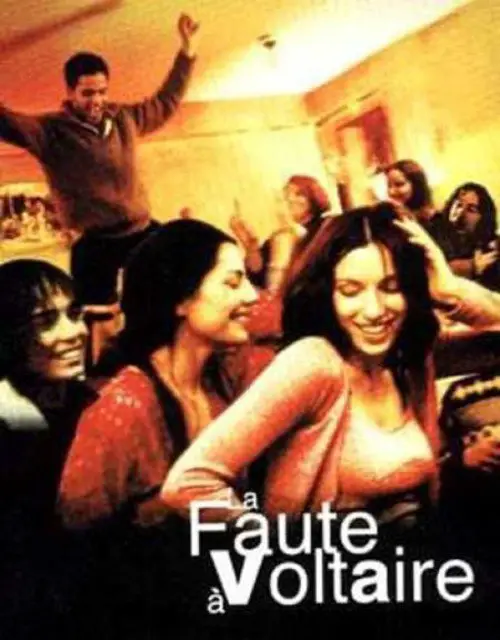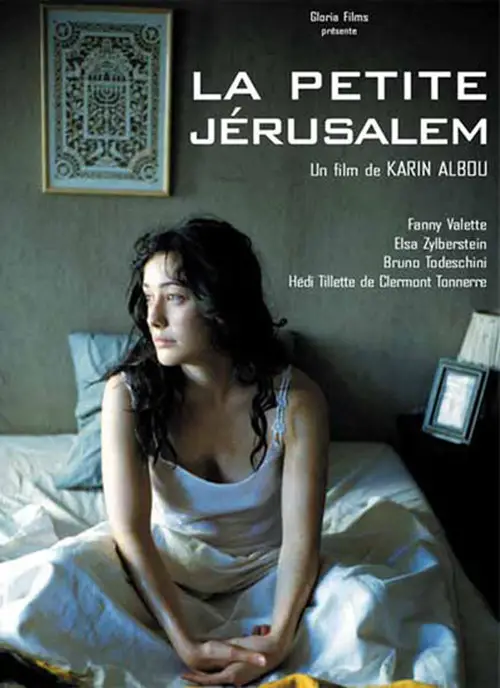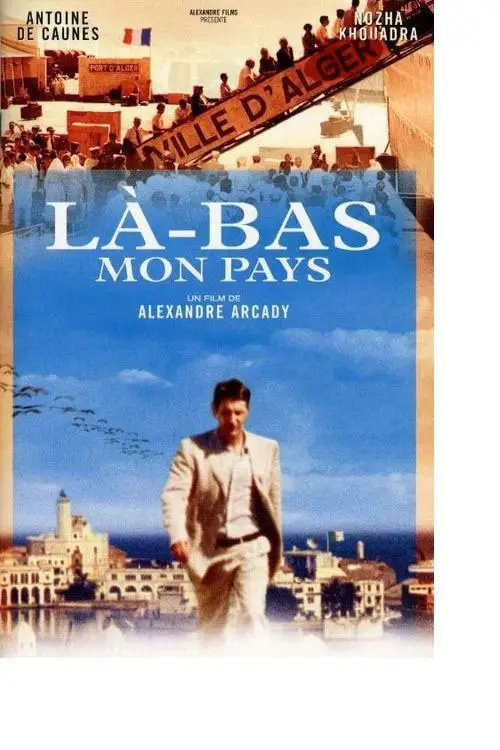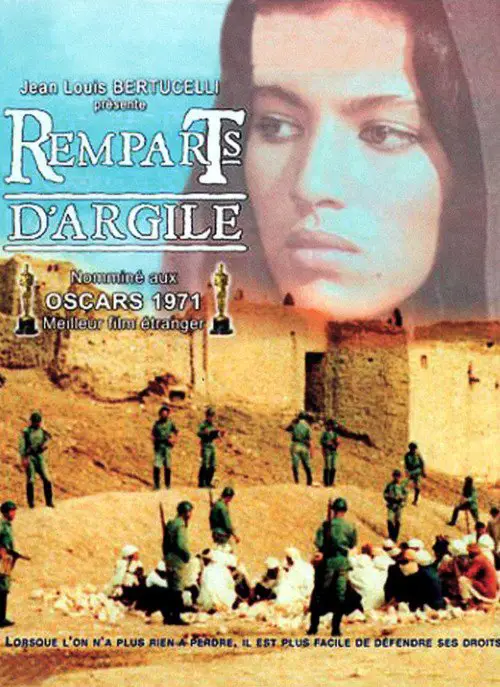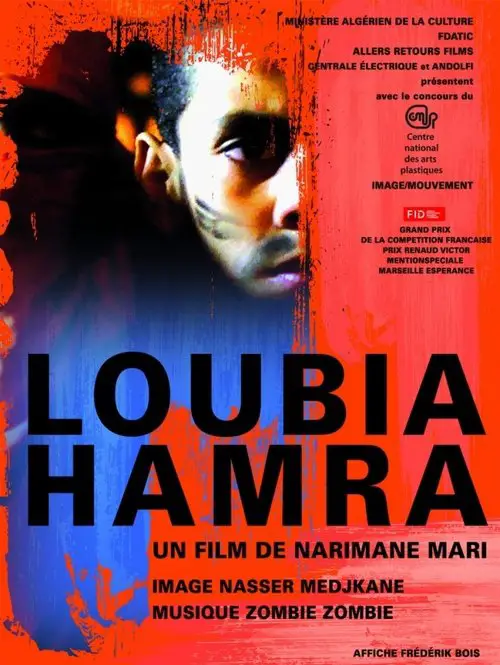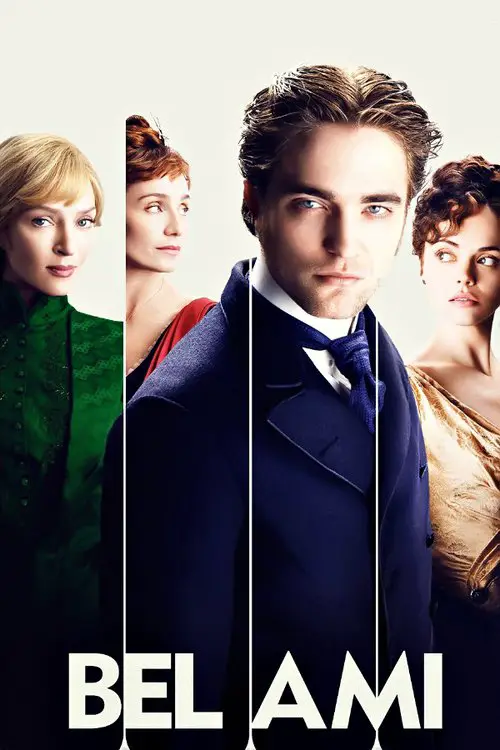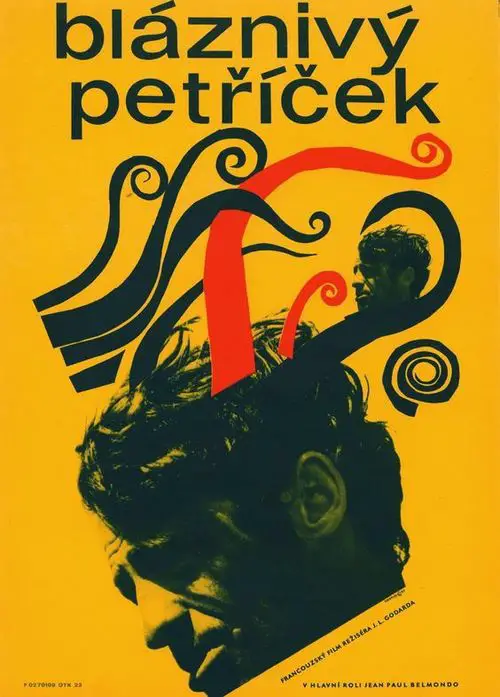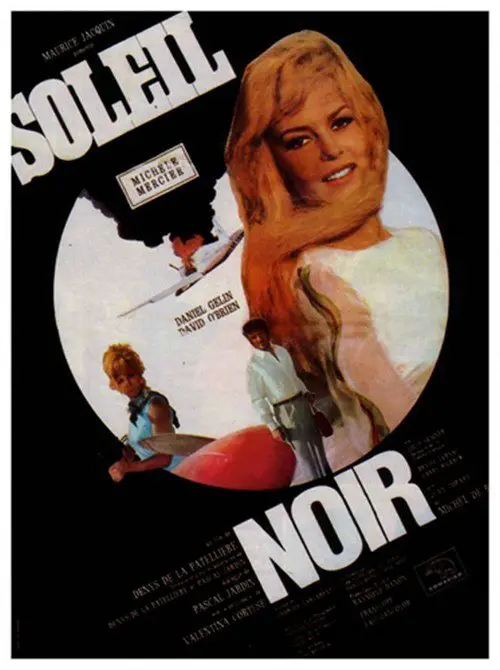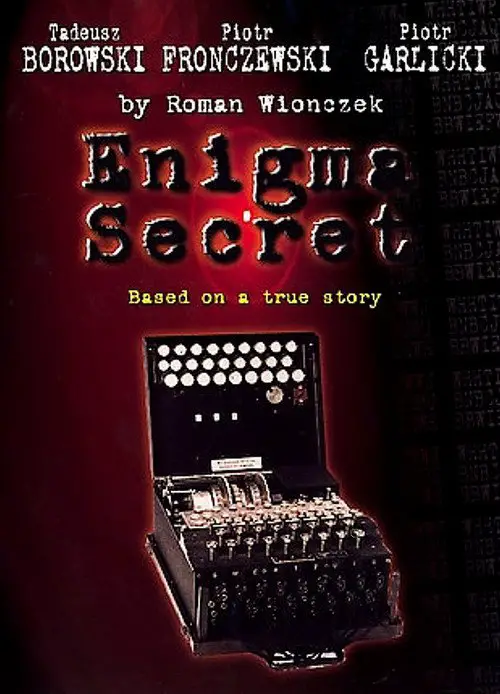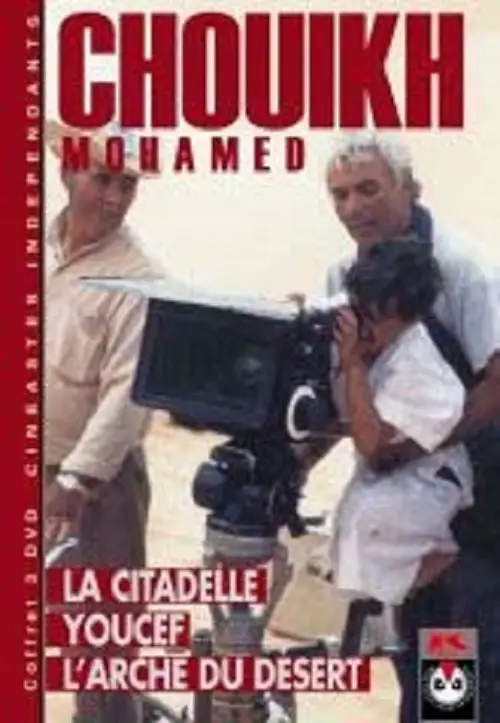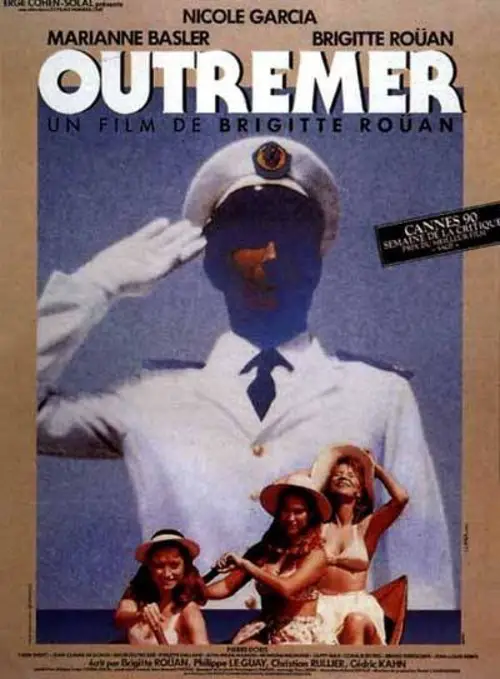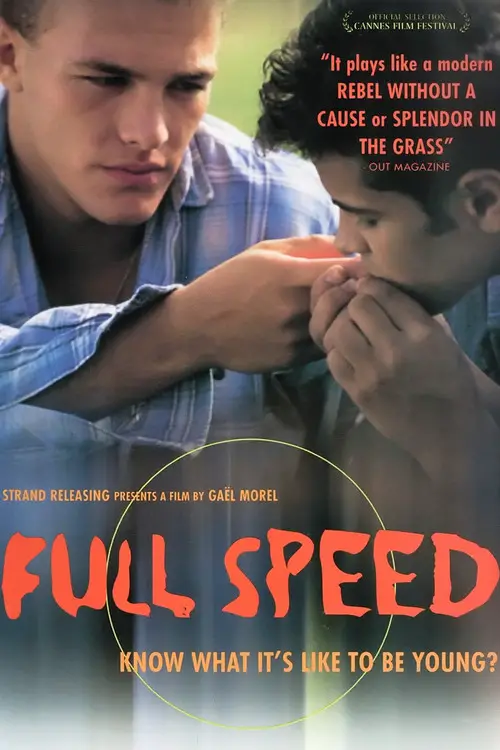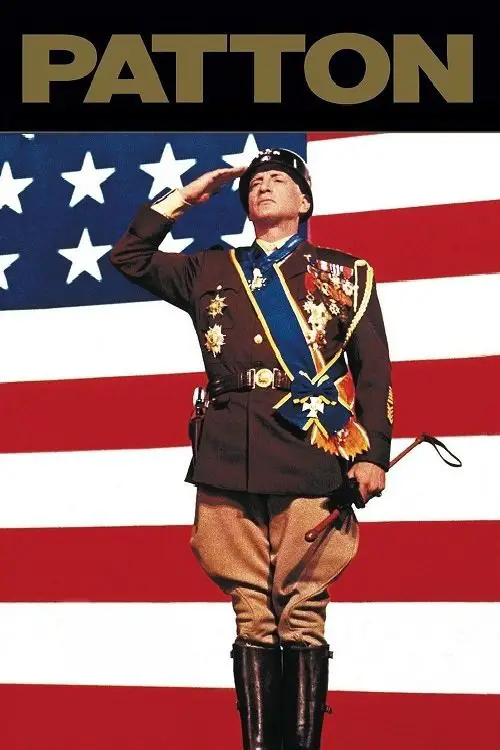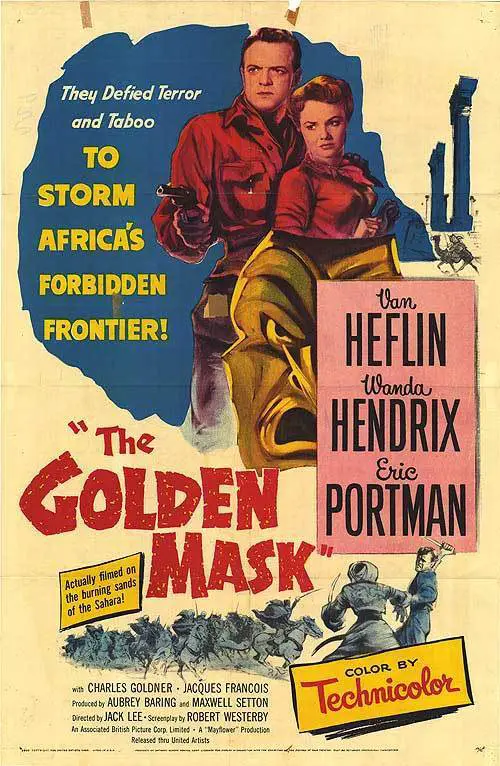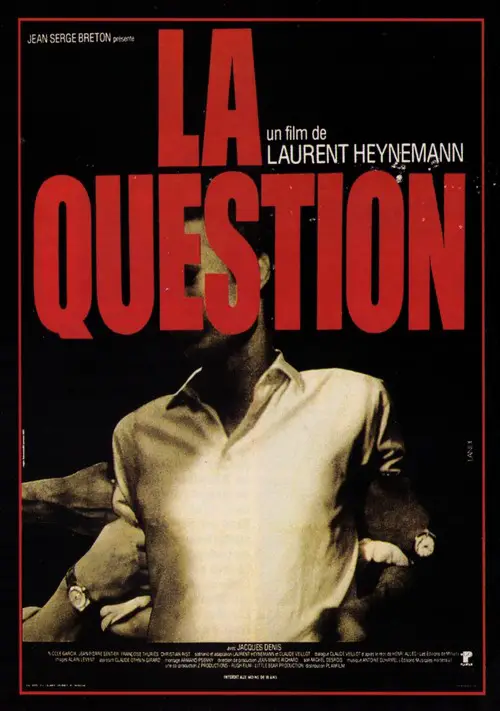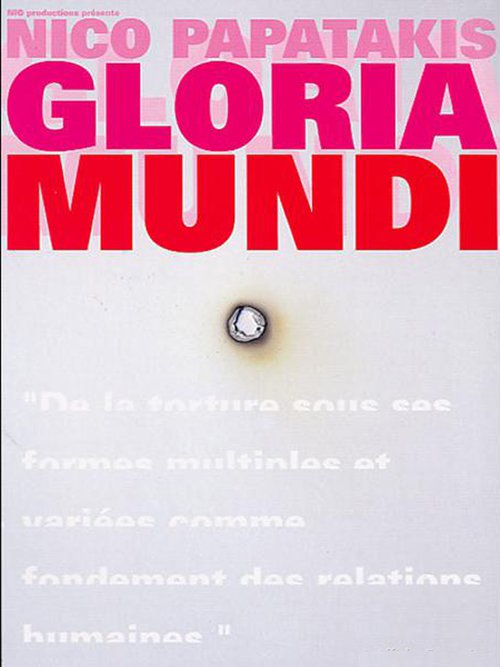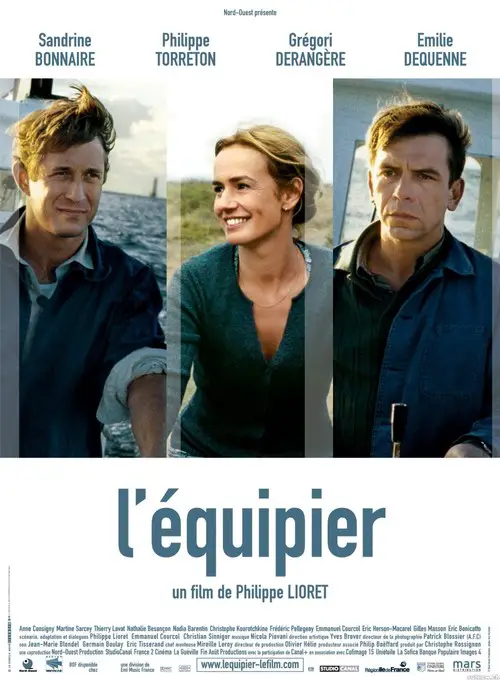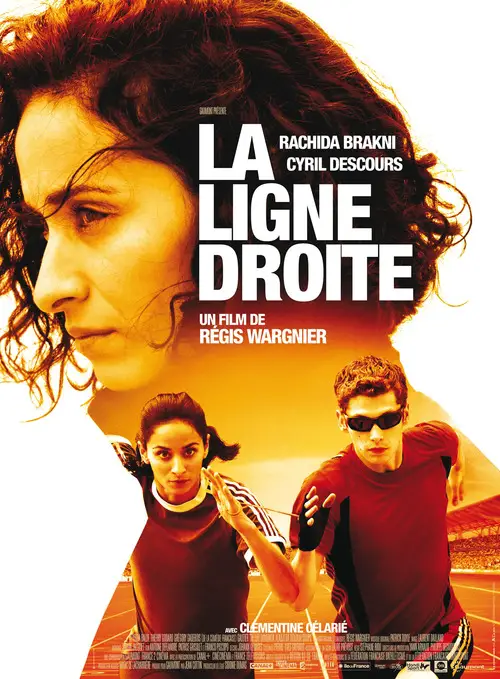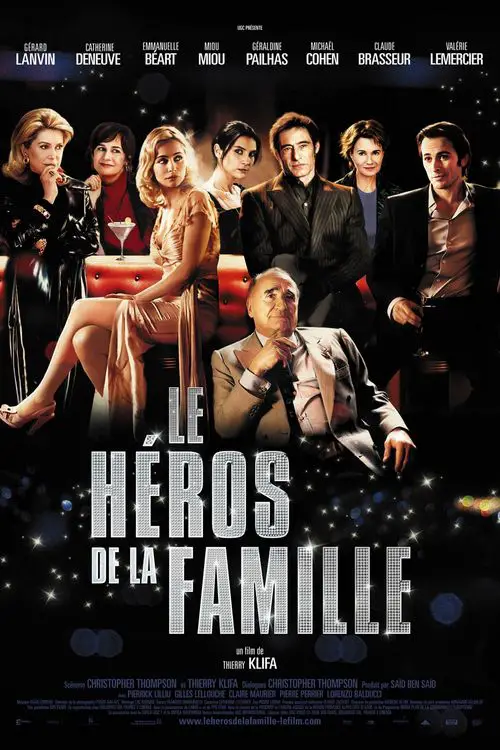Bab El Oued City (1994)
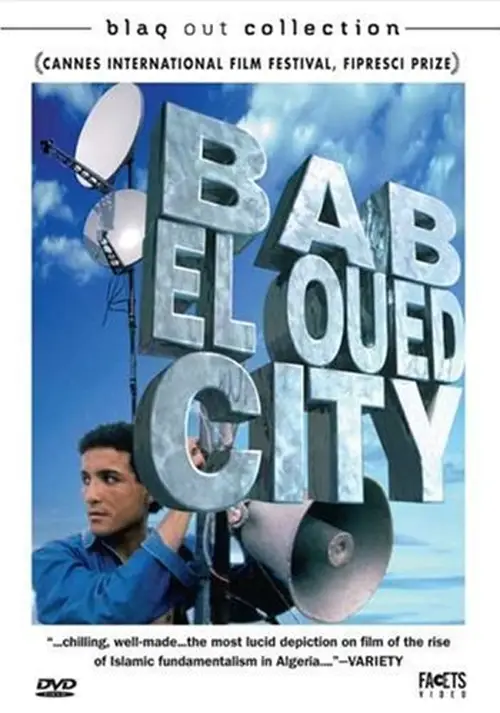
Similar movies
Cléo is a pop singer who wanders around Paris while she awaits her biopsy results in fear she may have cancer. As Cléo readies herself to meet with her doctor at 7 o'clock, she meets with several friends and strangers while trying to grapple with mortality. Sensing indifference from those nearest to her, she finds herself questioning the doll-like image people have of her and is overcome by a feeling of solitude and helplessness. She finally finds some comfort in the company of stranger she meets in a park and with whom she is able to have a sincere conversation.
In the fall of 1963, Anne is becoming a teenager. She lives in Paris with her mother and her older sister, Frédérique. They're just back from summer at the beach with their father. School starts. For Frédérique it's the year of her first serious love, her first foray into politics (the Algerian question and "ban the bomb"), her first kiss from an older man, her first friend who runs away, and her first loss of friendship over values. For Anne, who watches her sister closely, it's a year of her first period and of learning to talk to boys, dealing with unfair teachers, and sorting things out with mom after getting in trouble.
Farid, a young 26-year-old Frenchman, must travel to Algeria to save his father's house. While discovering this country in which he had never before set foot, he succumbs to the charms of a host of astonishing characters whose humour and simplicity affect him deeply. Amongst these is his cousin, a bright and lively young man who has the dream of one day going to France...
Bahia Benmahmoud, a free-spirited young woman, has a particular way of seeing political engagement, as she doesn't hesitate to sleep with those who don't agree with her to convert them to her cause - which is a lot of people, as all right-leaning people are concerned. Generally, it works pretty well. Until the day she meets Arthur Martin, a discreet forty-something who doesn't like taking risks. She imagines that with a name like that, he's got to be slightly fascist. But names are deceitful and appearances deceiving..
Candlelight in Algeria is a 1944 British war film directed by George King and starring James Mason, Carla Lehmann and Raymond Lovell. This drama follows the exploits of Eisenhower's top aide, Mark Clark, and other important Allies as they journey to an important meeting held on Algeria's coast. The precise location of this vital secret gathering is upon a piece of film which must not fall into enemy hands
Tracing the struggle of the Algerian Front de Liberation Nationale to gain freedom from French colonial rule as seen through the eyes of Ali from his start as a petty thief to his rise to prominence in the organisation and capture by the French in 1957. The film traces the rebels' struggle and the increasingly extreme measures taken by the French government to quell the revolt.
This movie is a odyssey of sorts. Both Zano, played by Romain Duris, and Naima (Lubna Azabal) live in France, but have ties that draw them back to Algeria. The film follows their slow but determined trip southward.Since they are traveling without funds--or even a map--they naturally need help from others along the way. These interactions with the people they meet on the road are fascinating. The two characters are not exactly role models for today's youth, but you have to admire their tenacity and their unwillingness to turn back.
A chamber drama about a widow and her son who live in an antique shop in Boulogne. The widow invites a man whom she loved twenty-two years earlier to visit. Her son is haunted by Muriel, a young woman whose death he may have caused while serving as a soldier in Algeria. As in Resnais' earlier films, memory is deflected, fragmented, enshrined, and imagined.
Set in rural France during the end of the Algerian war, and immersed in the music of the sixties, this film follows four students in friendship and love. Francois's best friend is a girl Maite, but instead he falls in love with a boy Serge, while Serge is falling for Maite. Henri is the outsider, an Algerian-born frenchman who has fled the war, and the catalyst for Francois to find his identity.
In Paris during WWII, an Algerian immigrant is inspired to join the resistance by his unexpected friendship with a Jewish man. Based on not very known facts about the Muslim community in Paris during WWII, when the Paris Mosque and its dynamic leader played a pivotal role in supporting the resistance and rescuing Jews.
Algeria, the 1930s. Younes is nine years old when he is put in his uncle's care in Oran. Rebaptized Jonas, he grows up among the Rio Salado youths, with whom he becomes friends. Emilie is one of the gang; everyone is in love with her. A great love story develops between Jonas and Emilie, which is soon unsettled by the conflicts troubling the country.
French drama based on the 1996 kidnapping and killing of seven monks in Algeria. A group of Trappist monks reside in the monastery of Tibhirine in Algeria, where they live in harmony with the largely muslim population. When a bloody conflict between Algeria's army and Muslim Jihadi insurgents disrupts the peace, they are forced to consider fleeing the monastery and deserting the villagers they have ministered to. In the face of deadly violence the monks wrestle with their faith and their convictions, eventually deciding to stay and help their neighbours keep the army and the insurgents at bay.
This simple romantic tragedy begins in 1957. Guy Foucher, a 20-year-old French auto mechanic, has fallen in love with 17-year-old Geneviève Emery, an employee in her widowed mother's chic but financially embattled umbrella shop. On the evening before Guy is to leave for a two-year tour of combat in Algeria, he and Geneviève make love. She becomes pregnant and must choose between waiting for Guy's return or accepting an offer of marriage from a wealthy diamond merchant.
Algeria region of the high flatlands. As Islamist groups continue to spread terror, Rashid, a young Jihadist, leaves the mountains to return to his village. In keeping with the law « of pardon and national harmony », he has to surrender to the police and give up his weapon. He thus receives amnesty and becomes a « repenti ». But the law cannot erase his crimes and for Rachid it's the beginning of a one-way journey of violence, secrets and manipulation.
This movie portrays three women living in today's Algeria between modern society and Islamic fundamentalism, self-determination and dependence. Goucem, a young woman who works for a photographer and mistress of a rich doctor, her mother Papicha, a former cabaret star, and her best friend Fifi, a prostitute, all live in a hotel in the city center of Algiers. Their difficult personal situation and the growing influence of Islam lead to dramatic consequences...
A "Reformed Colonel" is found dead in Paris, a couple of decades after Algeria's struggle for independence was won from France. Lieutenant Galois is assigned the investigation of this murder. She receives the diary of Lieutenent Guy Rossi who served under The Colonel in Algeria in 1956, and has been reported as missing in action since 1957. The revelations found in Rossi's diary go far beyond The Colonel's actions in Algeria, and give an insight on how dirty Algeria's War for Independence really was.
Based on a novel that Albert Camus was working on when he died, we follow Jacques Comery as he travels back to Algeria in 1957, a place full of childhood memories. The country is split between those wanting to remain a part of France, and those demanding independence. Reminiscences of his mother, his stern grandmother and a young Arab boy come flooding back.
Three people looking for a better life become stranded in the desert with little hope of survival in this drama from Spain. Buba (Adoum Moussa) is an auto repairman living in Niger with his brother Mukela (Illiassou Mahamadou Alzouma); their village is mired in poverty, and given Buba's talent as a football player, they decide to travel to Spain, where they believe Buba might have a shot at playing as a professional. Unable to travel legally into Europe, Buba and Mukela pay a smuggler $1,000 each for passage in the back of a panel truck into Algeria, where the can easily pass into Spain. En route, Buba and Mukela meet Violeta (Aminata Kanta), a teenage girl from Mali who is escaping an arranged marriage with a man she hates. During the trip into Algeria, the three begin to have doubts about the smugglers, and their fears become reality when they're dumped in the desert fourteen kilometers from their destination. Buba, Mukela and Violeta are told that they're only a four hour walk away.
During the Algerian war for independence from France, a young Frenchman living in Geneva who belongs to a right-wing terrorist group and a young woman who belongs to a left-wing terrorist group meet and fall in love. Complications ensue when the man is suspected by the members of his terrorist group of being a double agent.
In this drama that alludes to the Algerian War with France of the 1960s, Thomas is a deserter from the French Foreign Legion who is on the run from authorities. He helps damsel in distress Dominique, who has been taken hostage by a group of terrorists. Thomas is wounded but manages to escape after killing the guard who inflicted the injury. Dominique gives Thomas money to escape to France after he secures her freedom, but he is caught between the Foreign Legion and the terrorists seeking revenge.
Michel is a young technician in the fledgling TV industry and is due for military service in two months at the time of the Algerian War. Juliette and Liliane are inseparable best friends, and aspiring actresses, who hang around outside the TV studio. Michel invites them in to watch, flirts with them both, and dates them separately and together. When Michel goes on a holiday to Corsica, just before he is drafted, the girls follow.
Algiers, a few years after the civil war. Amal and Samir have decided to celebrate their twentieth wedding anniversary in a restaurant. While on their way, their share their views on Algeria: Amal talks about lost illusions and Samir about the necessity to cope with them. At the same time, their son Fahim and his friends Feriel and Reda are wandering about in a hostile Algiers about to steal their youth.
Frankie is in her forties, ambitious and successful. She works in the aerospace industry at Filton, designing surveillance drones for the military. Shes never married, and is completely in control of every part of her life. Her closest relationship is with her father, who worked as an engineer on Concorde. But her life changes forever when she embarks on a passionate affair with Kahil, a French/Algerian aerospace student, twenty years younger than her. One day, she arrives at work and is detained by the security services: Kahil is a person of interest to MI5. Her well-ordered life starts to unravel in a welter of suspicion and prejudice, as Frankie no longer knows whether to follow her passion or listen to the doubts that increasingly overwhelm her.
Slow-burning and smart, French director Rémi Lange's The Road to Love is a romantic tale of self-discovery that also offers a fascinating historical take on homosexuality in northern Africa. French-Algerian sociology student Karim is having trouble finding interviewees for his term project, a video documentary on homosexual relationships in Islamic cultures. As his research progresses, he meets Farid, a handsome flight attendant. In Farid, Karim believes he has found an ideal subject for his film...but he soon begins to admire more than just Farid's insight. When Karim learns that some cultures have accepted and encouraged same-sex unions, he finally begins to face his own sexuality. Set in scenic locales from Paris to Marseilles to Amsterdam (with a brief detour to Jean Genet's grave in Larache, Morocco), The Road to Love is a shrewd and sensual tale of enchantment and desire
Madame Rosa lives in a sixth-floor walkup in the Pigalle; she's a retired prostitute, Jewish and an Auschwitz survivor, a foster mom to children of other prostitutes. Momo is the oldest and her favorite, an Algerian lad whom she raises as a Muslim. He asks about his parents; she answers evasively. As she ages and takes fewer children, Momo must do more for her; as money is tight, he tries to earn pennies on the street with a puppet. He's a beautiful man-child, and Madame Rosa makes him promise never to sell himself or become a pimp. A film editor, Nadine, befriends him, and his father appears as well. Madame Rosa reaches her last days in fear of hospitals, and Momo must act.
Like a Candide dreaming of Eldorado, Jallel lands in France, hoping to try his luck. From encounter to encounter, hostel to social welfare group, Jallel will make his way through a Paris of outcasts. Although failing to achieve his hopes, he discovers and shares in the solidarity felt by the destitute. âuniFrance
Famous TV news anchorman Pierre Nivel left Algiers for France in 1962. That's been a secret; his Paris co-workers have never known that he was formerly an Algerian pied noir. An Algerian delivers an urgent message to Pierre from a Leïla Jalal... Algiers, 1962. The Nivels live in the same apartment building as the Moslem Jalal family. Lycée student Pierre is in love with their daughter, Leïla. The civil unrest in Algeria is heating up and violence is spreading in Algiers. At school, Pierre is friends with a Moslem student, Issam, but he is made fun of for that... Pierre's jet arrives in Algiers. As a celebrity, Pierre is met on arrival by a government official, Nader Mansour. Because of the civil war raging between the government and Islamic terrorists, they drive into the city in a heavily armed convoy. Pierre does not tell Mansour his real reason for returning: Leïla has asked him to help her daughter Amina escape to safety in France.
Pepe Le Moko is a notorious thief, who escaped from France. Since his escape, Moko became a resident and leader of the immense Casbah of Algiers. French officials arrive insisting on Pepe's capture are met with unfazed local detectives, led by Inspector Slimane, who are biding their time. Meanwhile, Pepe meets the beautiful Gaby , which arouses the jealousy of Ines
The feature-film debut of famed director Louis Malle is an interesting, modern film noir with the classic theme of lovers plotting to kill the husband and make it look like suicide (reminiscent of The Postman Always Rings Twice). Jeanne Moreau gives an astonishing performance, perverse but naive as she leads her young lover down a path that can only lead to doom for both of them.
The film begins with the final moments of the Battle of Dien Bien Phu in 1954, when the final assault of Viet Minh is imminent. The weakened French garrison awaits reinforcements that arrive with a single plane under the command of Major De Clairefons. The outpost commander, Basque Lt. Col. Pierre-Noel Raspeguy (Quinn) fights to protect the group, but the paras are slaughtered as they land
Repression is the rule of the day in this film that skewers Greek governance of the 1960s. Z (Yves Montand), a leftist rabble rouser, is killed in what appears to be a traffic accident. But given the political climate, the death of such a prominent activist raises troubling questions. Though it's too late to save Z's life, a postmortem examination suggests that the ruling party was behind his death. As the facts leak out, those who tell the truth pay the price for their honesty.
In 1962, change comes to a Tunisian village on the edge of the Sahara. An entrepreneur sets up a salt mine, hiring village men. When he pays only half the wages agreed upon, they sit down in a field of rocks. The boss calls the army, who encircle the strikers. The women watch, sacrifice a sheep, pray, ululate. During the second night, a young woman hides the bucket and rope of the town's well to keep water from the army. The strike galvanizes her: she's learning to read and has studied a city woman who visits the village. Now, as she removes her traditional dress and rejects a ritual to cast out her new rebellious spirit, will she gain independence as did Tunisia and the strikers?
On an Algerian beach, kids splash about, sleep, squabble - and then suddenly go to war. And itâs neither Lord of the Flies nor La Guerre des boutons. In her first film, full of grace, Narimane Mari films this childish freefor- all closely, at the irregular pace of an imagination inspired by the highest form of reality, national History â actually, nothing less than the Algerian War of Independence. When their make-believe induces a general upheaval, we follow the flock of children as they stamp their feet up the stairs, invade houses, cross village squares, in a whirlwind of shouts and empty words. Time is stretched like in a dream, through a choreography of belligerent shadows or the night-time explosion of the cemetery, as so many warning signs of dangers to come.
Three Polish mathematicians are the first to crack the sophisticated Enigma code used by the Germans just before the Second World War. They build replicas of the Enigma machines and manage to get two of the machines to the British and French code-breakers before the German invasion of Poland in 1939; they ask that recognition be given to their work at the end of the war. After the invasion, the Polish cipher bureau escapes and continues their decoding in Algeria and unoccupied France.
In French Algeria, after WWII, three daughters of wealthy settlers begin their adult lives. Zon marries an often absent sailor. Malene's husband, Gildas, refuses to work in the farm, so she has to take care of everything. Gritte, the youngest, does not want to marry and is a nurse for the natives. We will follow their three different destinies.
A brief extract of four kids' lives somewhere in France. Quentin, who won a writers contest and now pays more attention to his career as an author than to his friends, beautiful Julie, his girl-friend, much more mature than she looks, falling in love with Quentin's very best friend Jimmy, who is kind of stuck in his unability of self-expression and grown up under bad social circumstances. And there is the shy boy Samir, exiled from Algeria, who lost his "brother" and only friend some time ago. Samir heavily falls in love with Quentin, but he can't handle it...
"Patton" tells the tale of General George S. Patton, famous tank commander of World War II. The film begins with patton's career in North Africa and progresses through the invasion of Germany and the fall of the Third Reich. Side plots also speak of Patton's numerous faults such his temper and habit towards insubordination.
Annecy is no tourist destination for three working-class Algerian brothers and their father, in the months after their mother has died. Marc is deeply troubled: he tries to stiff drug dealers and then plots revenge. Christophe is released from jail, lands a job, and must overcome various temptations in order to keep it. Olivier, nearing 18, may be falling in love with Hicham...
Hamdias, a producer who's set out to break new boundaries, plans to finance a film about torture. According to him, torture, the clash of two or more people, is not only what substantiates basic human relationships but also love and politics. Unfortunately Hamdias dies in a freak accident and his project is grounded. After some time, Galai (Olga Karlatos), who should have been the main actress of Hamdias movie, sets out to complete the controversial project. As soon as filming starts again, the thin line that separates reality from a nightmarish obsession begins slowly to blur.
Camille arrives in Ouessant, the island of her birth off the Brittany coast, to sell the family home. She spends a last night in the house during which she discovers a secret. In 1963 a man came to work with her father, who was the Jument lighthouse operator. He only stayed two months, but his presence proved to be a disturbing catalyst.
As every summer, Georges Lajoie, his wife Ginette and grown-up son Léon go on holiday to Loulou's campsite. They join old friends, the Schumachers and the Colins. Brigitte Colin, the daughter, is quite a pretty young girl now. One day, Georges rapes and murders her. He hides the body near the barracks of the immigrant Arab workers. The racism of the campers will do the rest... A virulent lampoon against the average Frenchman's racism.
Leila is released from prison after five years of confinement. She will meet Yannick, a young athlete who became blind after an accident. This last practice race despite his disability, but to run it must be connected by a wire to guide a person called. It offers Leila to be his guide. Through this project, they will learn to rebuild.
A story of a cabaret in Nice called "Le perroquet bleu" ("The blue parrot"). The innkeeper, Gabriel, dies at the beginning of the movie and leave his business to his godchildren : Nino and Marianne, whom father had been taken under Gabriel's wing when he was fifteen years old. After the reading of the will, the fate of "The Blue Parrot" is in their hands.
© Valossa 2015–2026
| Privacy Policy

